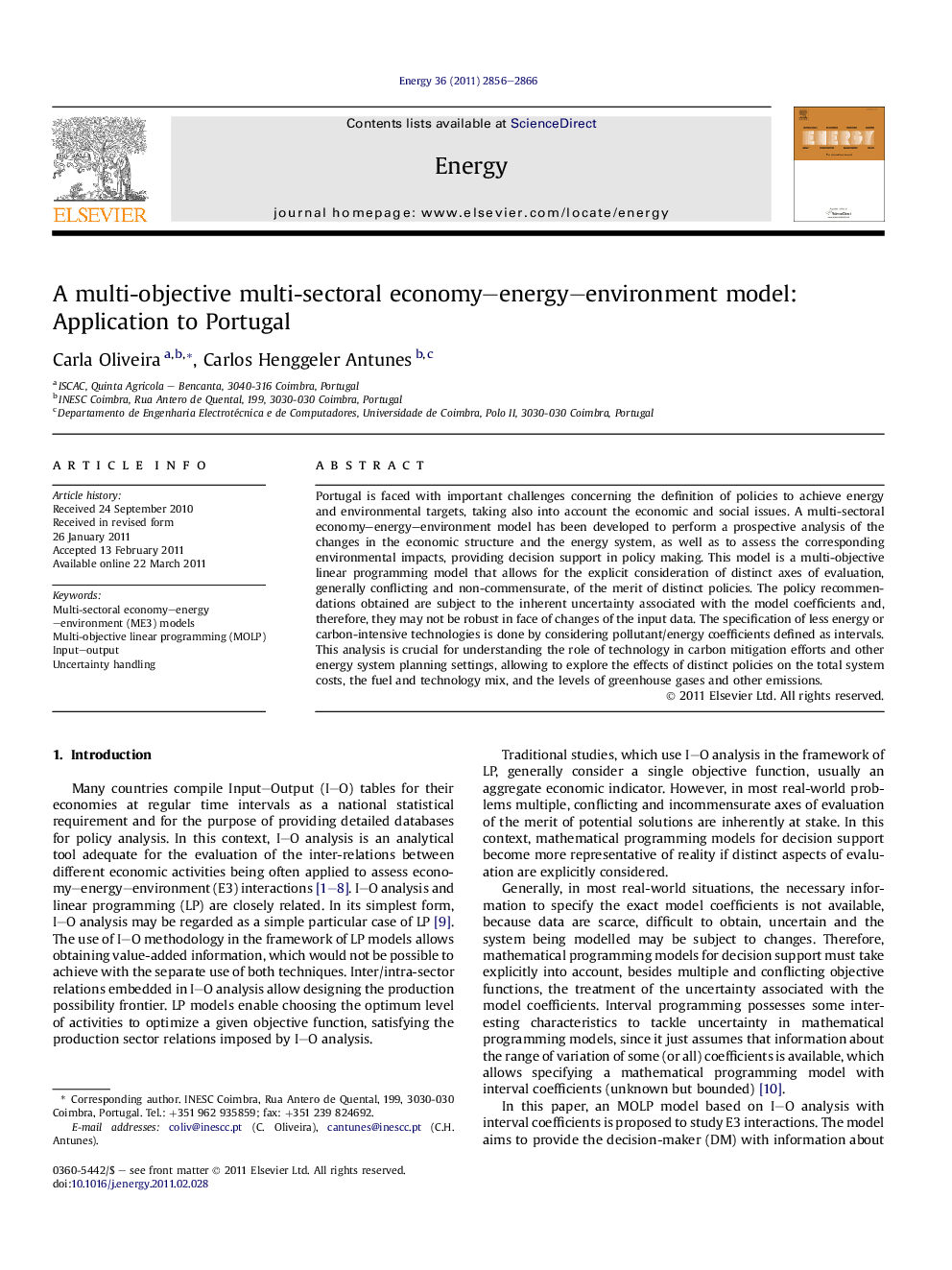| Article ID | Journal | Published Year | Pages | File Type |
|---|---|---|---|---|
| 1734517 | Energy | 2011 | 11 Pages |
Portugal is faced with important challenges concerning the definition of policies to achieve energy and environmental targets, taking also into account the economic and social issues. A multi-sectoral economy–energy–environment model has been developed to perform a prospective analysis of the changes in the economic structure and the energy system, as well as to assess the corresponding environmental impacts, providing decision support in policy making. This model is a multi-objective linear programming model that allows for the explicit consideration of distinct axes of evaluation, generally conflicting and non-commensurate, of the merit of distinct policies. The policy recommendations obtained are subject to the inherent uncertainty associated with the model coefficients and, therefore, they may not be robust in face of changes of the input data. The specification of less energy or carbon-intensive technologies is done by considering pollutant/energy coefficients defined as intervals. This analysis is crucial for understanding the role of technology in carbon mitigation efforts and other energy system planning settings, allowing to explore the effects of distinct policies on the total system costs, the fuel and technology mix, and the levels of greenhouse gases and other emissions.
► A multi-objective linear programming model based on input–output analysis with interval coefficients has been developed to study economy–energy–environment interactions. ► A novel algorithm is used to provide decision support in multi-objective linear programming models with interval coefficients to capture data uncertainty. ► The illustrative results reveal a strong antagonism between economic growth, social well-being and environmental impacts. ► With the technological coefficient set of the base year and a pessimistic evolution of the economic situation, the targets of the Kyoto Protocol and the Ceilings Directive cannot be met.
